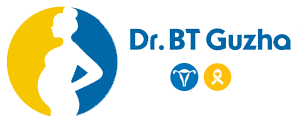Polycystic Ovarian Syndrome (PCOS) is a hormonal disorder that affects millions of women worldwide. It is characterized by a range of symptoms related to the reproductive system, metabolism, and hormone levels. PCOS can have significant implications for both physical and emotional well-being. In this blog, we will delve into the details of PCOS, including its causes, symptoms, and management strategies.
1. What is PCOS?
PCOS is a complex condition that occurs when a woman’s body produces higher than normal levels of androgens (male hormones), which can disrupt the regular menstrual cycle and lead to the growth of small cysts on the ovaries. While the exact cause of PCOS is still unknown, genetics, insulin resistance, and hormonal imbalances are believed to play a role.
2. Symptoms of PCOS:
PCOS presents a wide range of symptoms that can vary among individuals. Some common signs and symptoms include irregular or absent menstrual periods, excessive hair growth (hirsutism), acne, weight gain or difficulty losing weight, mood swings, and difficulty conceiving. It’s important to note that not all women with PCOS experience cysts on their ovaries.
3. Diagnosing PCOS:
Diagnosing PCOS involves a comprehensive evaluation, including a detailed medical history, physical examination, and blood tests. Additionally, an ultrasound may be performed to examine the ovaries for cysts or other abnormalities. Because PCOS symptoms can overlap with other conditions, a proper diagnosis from a healthcare professional is crucial.
4. Management and Treatment:
While there is no known cure for PCOS, managing the symptoms and reducing the risk of associated health issues are key goals of treatment. The approach may vary depending on the individual, but some common strategies include:
a. Lifestyle Changes: Making healthy lifestyle modifications can have a positive impact on PCOS symptoms. This includes regular exercise, maintaining a balanced and nutritious diet, managing weight, and practicing stress-reduction techniques.
b. Medications: Hormonal contraceptives, such as birth control pills, can regulate menstrual cycles and reduce androgen levels. Other medications, such as anti-androgens and insulin-sensitizing drugs, may be prescribed to address specific symptoms or underlying causes.
c. Fertility Treatments: For those struggling with infertility due to PCOS, various fertility treatments like ovulation induction and in vitro fertilization (IVF) may be recommended.
5. Emotional Support and Self-Care:
Living with PCOS can be emotionally challenging, and women may experience anxiety, depression, or body image issues. Seeking support from healthcare professionals, online communities, or support groups can be beneficial. Practicing self-care, including self-compassion, stress management techniques, and engaging in activities that bring joy, can also help improve overall well-being.
Conclusion:
Polycystic Ovarian Syndrome is a common hormonal disorder that affects many women worldwide. Although living with PCOS may pose challenges, early diagnosis, proper management, and lifestyle modifications can significantly improve symptoms and reduce the risk of long-term health issues. If you suspect you may have PCOS, consult with a healthcare professional who can guide you towards an accurate diagnosis and personalized treatment plan. Remember, you are not alone, and with support and proactive measures, you can lead a fulfilling life while managing PCOS.

